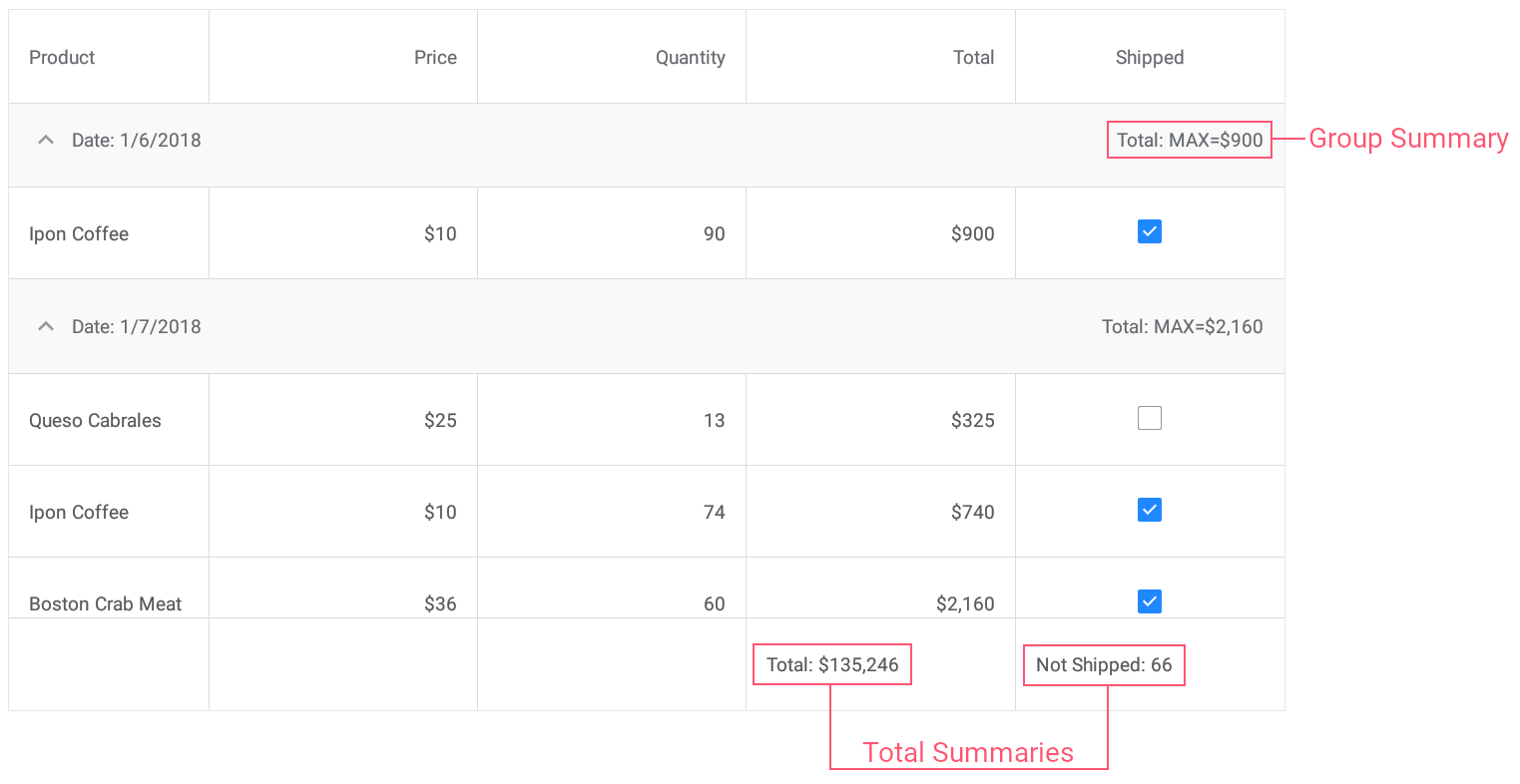CustomSummaryEventArgs Class
Provides data for the DataGridView.CustomSummary event.
Namespace: DevExpress.Maui.DataGrid
Assembly: DevExpress.Maui.DataGrid.dll
NuGet Package: DevExpress.Maui.DataGrid
Declaration
public class CustomSummaryEventArgs :
EventArgsRemarks
The CustomSummaryEventArgs objects are automatically created, initialized and passed to the DataGridView.CustomSummary event handlers.
Example
This example uses predefined aggregate functions and custom rule to calculate group and total summaries for grid columns.

- Set the group summary to display the maximum Total value for each group of records.
- Set the total summary to calculate the sum of values in the Total column.
- Set the custom total summary to count the number of orders whose value in the Shipped column is false (to count orders that have not shipped).
<dxg:DataGridView x:Name="grid" ItemsSource="{Binding Orders}"
CustomSummary="OnCalculateCustomSummary">
<!-- ... -->
<dxg:DataGridView.GroupSummaries>
<dxg:GridColumnSummary FieldName="Total" Type="Max"/>
</dxg:DataGridView.GroupSummaries>
<dxg:DataGridView.TotalSummaries>
<dxg:GridColumnSummary FieldName="Total" Type="Sum"
DisplayFormat="Total: {0:C0}"/>
<dxg:GridColumnSummary FieldName="Shipped" Type="Custom"
DisplayFormat="Not Shipped: {0}"/>
</dxg:DataGridView.TotalSummaries>
</dxg:DataGridView>
int count;
// ...
private void grid_CustomSummary(object sender, DevExpress.Maui.DataGrid.CustomSummaryEventArgs e) {
if (e.FieldName.ToString() == "Shipped")
if (e.IsTotalSummary) {
if (e.SummaryProcess == DevExpress.Maui.Core.DataSummaryProcess.Start) {
count = 0;
}
if (e.SummaryProcess == DevExpress.Maui.Core.DataSummaryProcess.Calculate) {
if (!(bool)e.Value)
count++;
e.TotalValue = count;
}
}
}
Inheritance
System.Object
EventArgs
CustomSummaryEventArgs
See Also